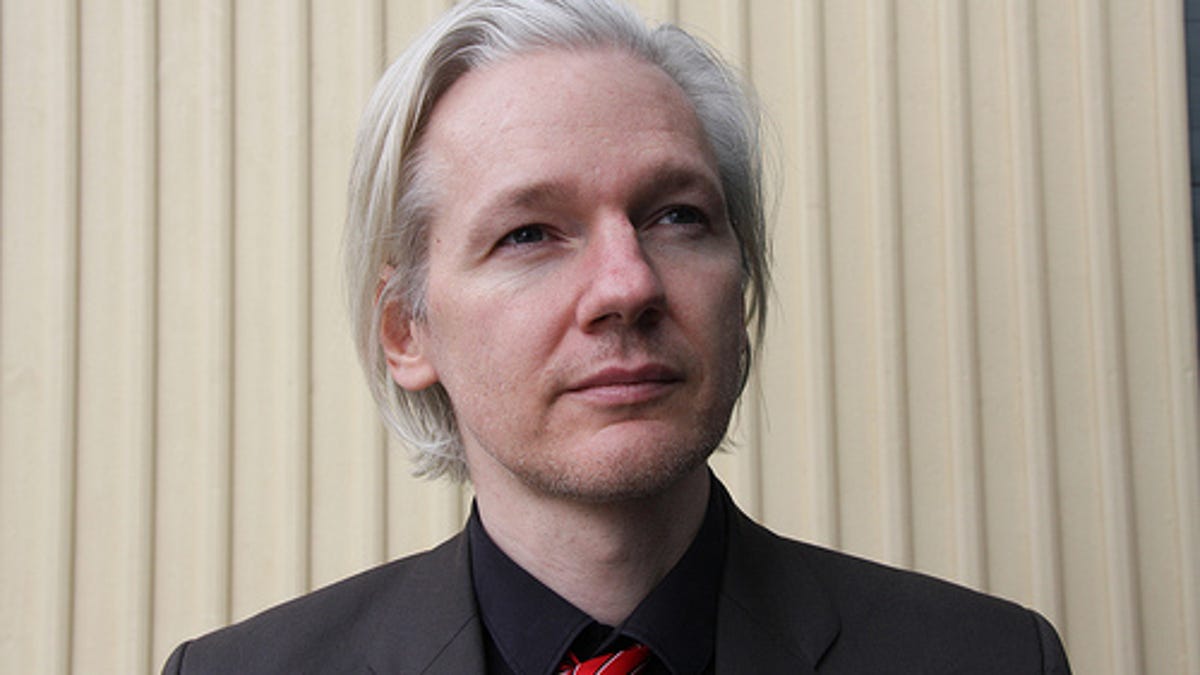Sweden issuing arrest warrant for WikiLeaks' Assange
Stockholm court says Julian Assange will be "detained in his absence" on rape and molestation charges, which his lawyer says are false and politically-motivated.

The Swedish government said today it would issue an international arrest warrant for WikiLeaks spokesman Julian Assange on rape charges.
A Stockholm district court ruled that Assange will be "detained in his absence" on charges of rape, sexual molestation, and unlawful coercion. The decision came at a hearing where Sweden's director of prosecution, Marianne Ny presented evidence related to the allegations.
"I requested his arrest so we could carry out an interrogation with Assange," Ny told the Agence France-Presse news agency. "That is the reason."
The rape allegations--which Assange strenuously denies and says are politically-motivated--surfaced in an odd series of events this summer.
The Swedish newspaper Expressen initially reported that it had received confirmation of the rape complaint from the Stockholm prosecutor's office, but within 24 hours, the arrest warrant had been canceled. But less than two weeks later, the Swedish Prosecution Authority announced that the rape investigation had been not just reopened, but widened to include the sexual coercion and molestation charges.
For its part, WikiLeaks has distributed a statement from Mark Stephens, an attorney at the London-based FSI law firm, saying "this behavior is not a prosecution, but a persecution," and: "Our client has always maintained his innocence. The allegations against him are false and without basis."
Stephens added: "Despite his right to silence, my client has repeatedly offered to be interviewed, first in Sweden before he left, and then subsequently in the UK (including at the Swedish Embassy), either in person or by telephone, videoconferencing or e-mail, and he has also offered to make a sworn statement on affidavit. All of these offers have been flatly refused..."
The rape allegations have attracted some skepticism because of the timing: WikiLeaks launched in early 2007, but the rape allegations became public a few weeks after Assange drew the wrath of the U.S. government and military for releasing more than 75,000 confidential files related to the war in Afghanistan.
Then, in October, WikiLeaks defied a series of increasingly stern warnings from the Pentagon and other government officials by releasing a massive trove of secret documents from the Iraq war.
Starting with the release of the Iraq war files, Assange has encountered a barrage of criticism, including a profile in The New York Times that used language describing him such as "erratic and imperious behavior" and "a nearly delusional grandeur." The Obama administration has accused him of violating U.S. law, and some of the more strident conservatives have called for cyberattacks on WikiLeak's servers, with a Fox News commentator implying that Assange could be legally assassinated as an "enemy combatant."
And as CNET previously reported last month, a Republican senator has proposed rewriting the Espionage Act to specifically target WikiLeaks.
Update 11:30 a.m. PT: I've asked Mark Stephens, Assange's London-based attorney, if his client is in the U.K. now and whether he will return to Sweden for questioning or try to get the arrest warrant dismissed. I haven't received an answer yet.

